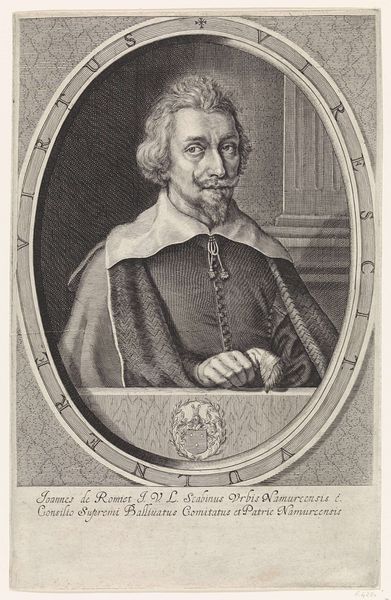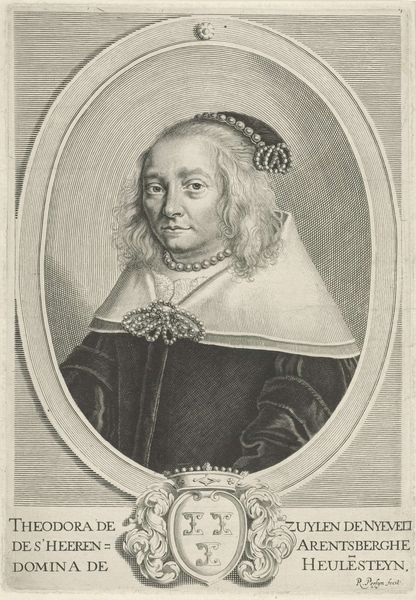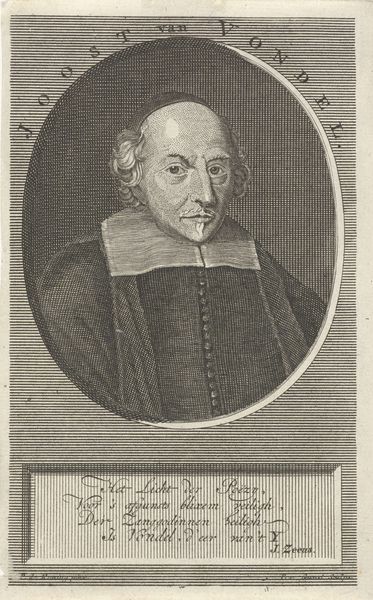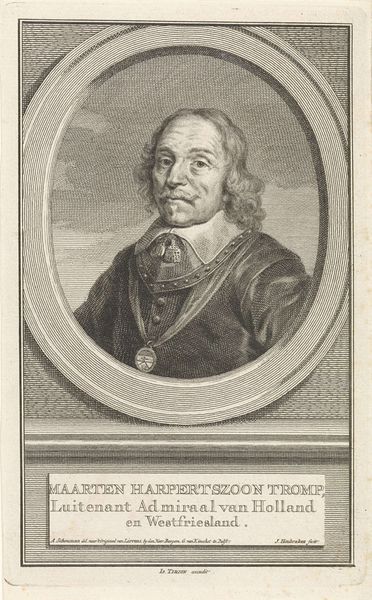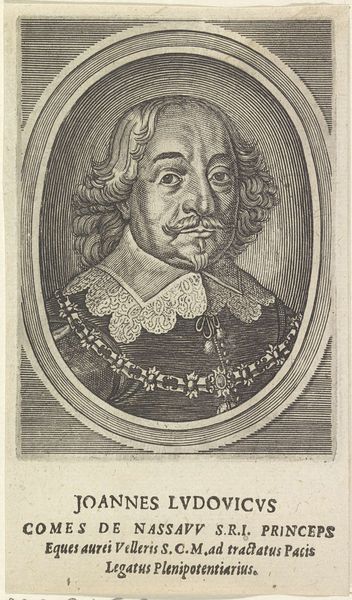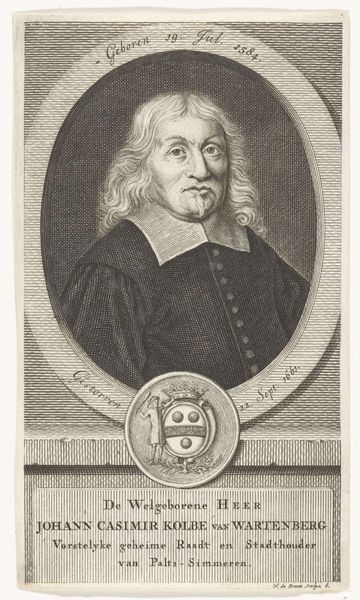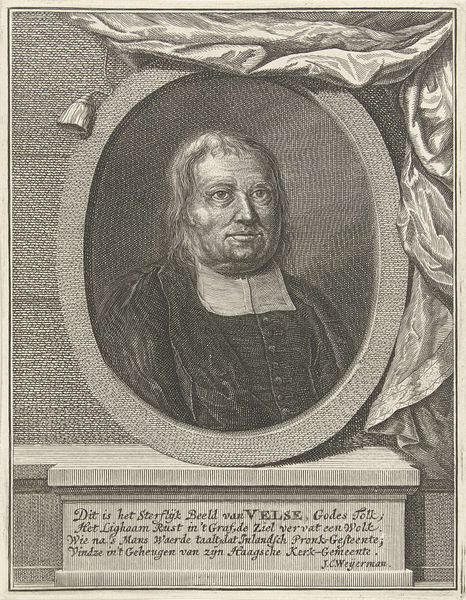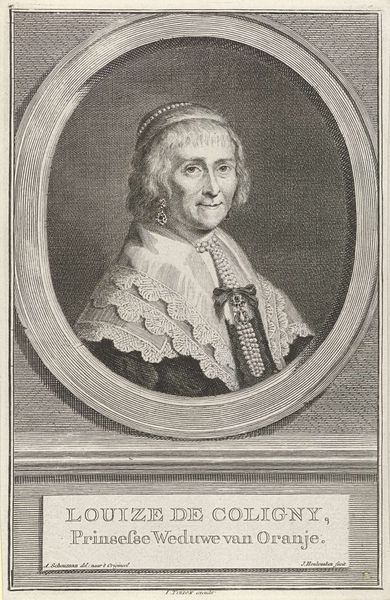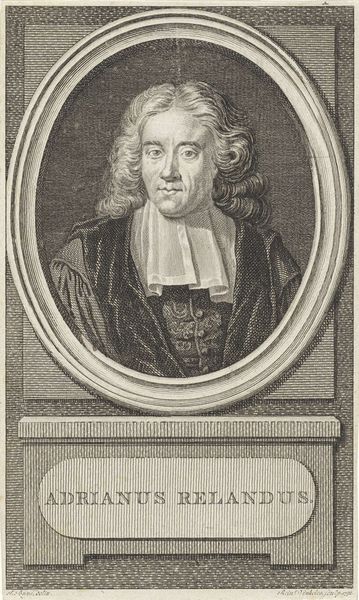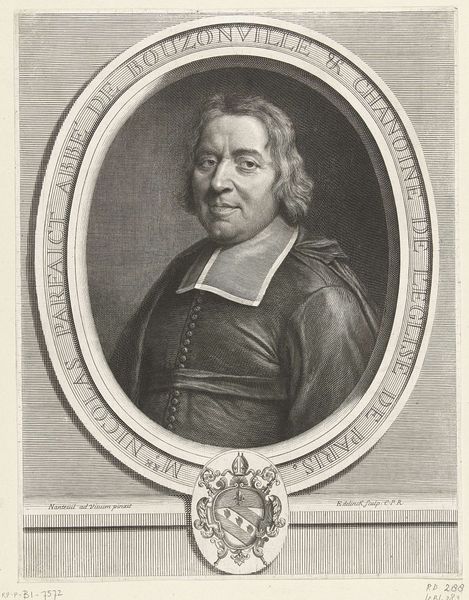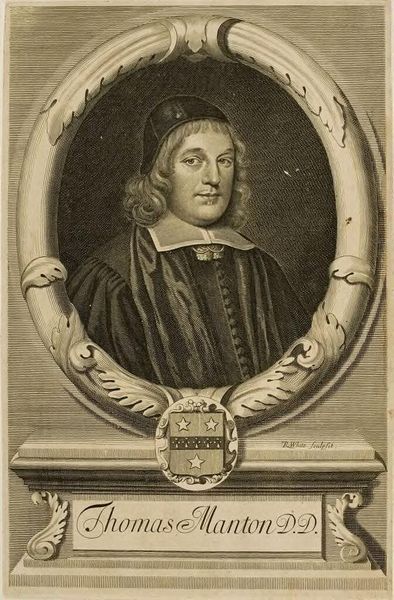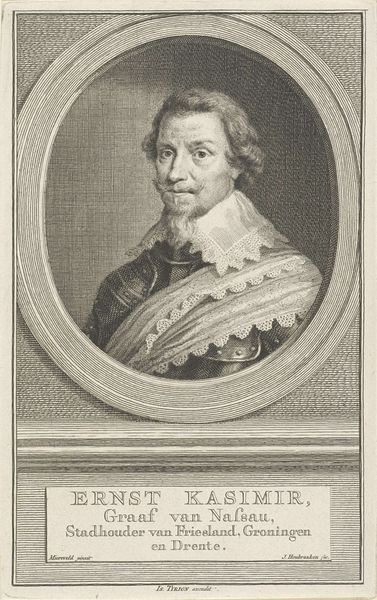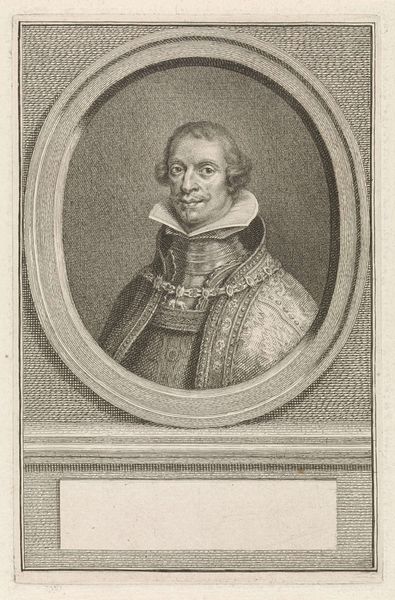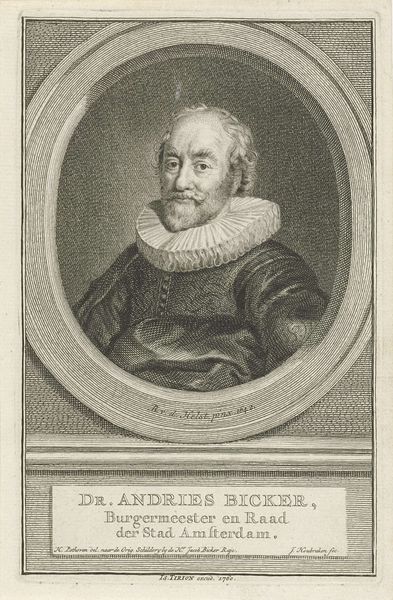
engraving
#
portrait
#
neoclacissism
#
old engraving style
#
form
#
historical photography
#
framed image
#
19th century
#
line
#
history-painting
#
engraving
Dimensions: height 151 mm, width 89 mm
Copyright: Rijks Museum: Open Domain
Editor: Here we have Reinier Vinkeles’ engraving, "Portret van Gijsbrecht ab Isendoorn," created in 1795. The detail achieved with the engraving technique is quite impressive. There's almost a photographic quality to it, despite it being from the late 18th century. What strikes you most when you look at it? Curator: It whispers of a time when permanence was sought through painstaking detail, doesn’t it? The meticulous lines create a man of substance, literally and figuratively framed by history. But look closer - isn't there a quiet tension between the formality of the portrait and the subject’s somewhat… lived-in face? That little blemish, almost daring to disrupt the idealized image. Do you think it's a flaw, or something more intentional? Editor: I'd say more intentional, it's kind of humanising, especially compared to the perfect oval surrounding him. It's so precise, yet there's this very human element peeking through. It doesn't seem typical for neoclassicism art. Curator: Precisely! Neoclassicism, at its core, aimed for an idealized vision, borrowing from the classical world's perceived order and reason. Yet here, Vinkeles allows a subtle disruption of that ideal. The slight asymmetry, the honest portrayal of age… perhaps it hints at the undercurrents of change bubbling beneath the surface of 18th-century society. Doesn't it make you wonder what Isendoorn was like in reality? Editor: It really does. Now I am not just seeing an old engraving. The subtle nuances provide insight into a whole different worldview. Thanks! Curator: My pleasure! Art's like that – a conversation across centuries, if you just listen closely.
Comments
No comments
Be the first to comment and join the conversation on the ultimate creative platform.
